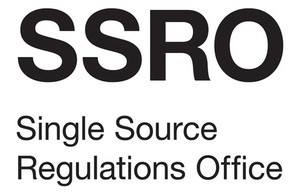The International Trade Secretary and President of the Board of Trade, The Rt Hon Dr. Liam Fox MP, joins ceramics producers in Derby today (Thursday 31st January) to discuss the industry’s priorities and to update them on the UK’s preparations for leaving the European Union. The ceramics industry is crucial to the health of the UK economy, with export sales of £550m every year and accounting for more than 22,000 jobs.
Dr. Fox will meet with the British Ceramics Confederation to outline measures the government is taking to ensure British ceramics are protected from dumping, which involves overseas firms selling their goods at below cost price to undermine the British market. Dumping is against World Trade Organization rules.
The UK will soon be responsible for delivering its own domestic trade remedies system through the new Trade Remedies Authority (TRA). The Department for International Trade has made significant progress to ensure the TRA will be ready for 29th March 2019, meaning that Government can continue providing a safety net to British industry.
The government is committed to ensuring that UK industry can continue to compete on a level playing field when we leave the EU, as well as helping them to realise opportunities to trade freely with new markets around the world.
The International Trade Secretary also joins local firms Denby Pottery, Royal Crown Derby and Paul Cummins to see first-hand the work they are doing to boost their exports around the world. His visit will see the arrival in Derby of the Export Hub, providing support and advice to businesses on their exporting journey.
International Trade Secretary, Dr Liam Fox MP said:
I am delighted to be here in Derby today at the invitation of the Prime Minister’s Trade Envoy, Pauline Latham OBE MP, meeting with representatives of one of the UK’s most treasured industries. It is one of my top priorities to ensure that fantastic ceramics producers like these are able to continue expanding into new and established markets as we open up our trade with the world, while remaining protected from unfair trading practices.
While ceramics is a vital industry in the East Midlands, exports on the whole have grown faster than any other region of the UK and my international economic department is working to translate this incredible success around the country.
Discussing the importance of free trade to their success, Sebastian Lazell, CEO of Denby said:
The main priority, not only for Denby and the ceramics industry but all UK exporters, will be Free Trade Agreements with key trading countries. Continued unimpeded trade, without substantial tariffs or non-tariff barriers, is essential for success.
Whilst Denby has been exporting for over 150 years, the seriousness and intensity of the International Trade agenda is now on a different level as the continued momentum of the business is highly dependent upon building a fast-growing International business to complement a healthy and vibrant UK core.
Christopher Oakes, Managing Director of Royal Crown Derby said:
Royal Crown Derby has been making luxury tableware in England since 1750 and whilst our first export was recorded in 1786, international sales have grown most rapidly in recent years and we now export to over 50 countries. This success is attributable to many factors including our diversification into the luxury hospitality sector, investment in product development and a growing demand for products which are still made entirely in Britain.
We’re delighted to welcome the International Trade Secretary, the British Ceramics Confederation and the export hub to our factory and visitors centre and we look forward to discussing how best to further boost export business against the current political backdrop and the attendant commercial and operational challenges.
Exports from the East Midlands increased by 10.9% in the last year – the biggest jump in the UK. The Midlands economy alone is worth more than £200 billion and is larger than countries such as Ecuador, New Zealand and Croatia.
